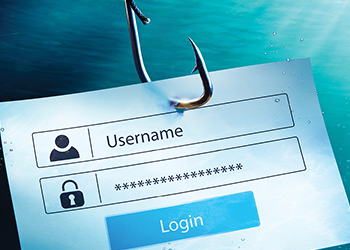Watch Out for Password Reset Scams
Posted October 10, 2024
In our tech-savvy world, password reset scams are becoming all too common. Scammers often pretend to be from trusted organizations to trick people into giving away their sensitive information. They use a mix of sneaky tactics, including fake emails, text messages, and even phone calls that that appear to come from your financial institution.
One popular trick is for scammers to send messages claiming there’s a problem with your banking account. Some scammers might even call you directly, using call spoofing to make it seem like they’re genuinely calling from your financial institution. They will probably ask you to verify your identity by providing personal information like your user ID or a one-time password. This is a major red flag! Legitimate organizations won’t ask for sensitive information like that over the phone or through email.
To help you protect your personal information, here are some simple tips:
- Verify Sources: If you get a message that seems fishy, don’t click on any links! Instead, go directly to the financial website or call using official numbers to check if the message is real.
- Look for Red Flags: Be on the lookout for generic greetings, typos, or urgent language that pushes you to act fast.
- Enable Two-Factor Authentication: If available, use two-factor authentication. This adds an extra layer of security by requiring a second verification step when you log in.
- Educate Yourself: Stay informed about common scams and the tactics that cybercriminals use. Knowing the signs can help you avoid becoming a victim.
- Report Suspicious Activity: If you think you’ve encountered a scam or accidentally shared your info with a fraudster, report it to your financial institution immediately. If your Bay Federal accounts might be compromised, you can reach us in branch, or over the phone at 831.479.6000 or toll-free at 888.4BAYFED. You’ll also want to keep an eye on your accounts for any unusual activity.
Always prioritize your security and double-check before you share any personal information. When it comes to your financial safety, it’s better to be safe than sorry!
For more information, please visit our Fraud Resources page.
Categories: Security
